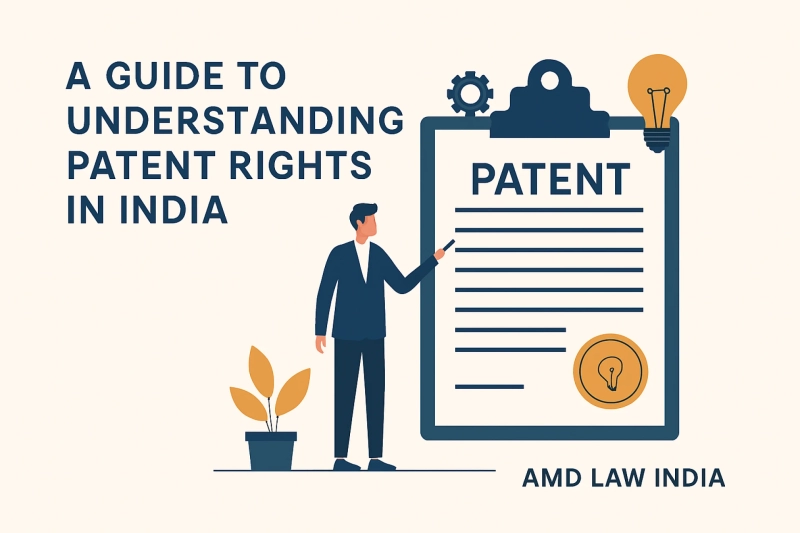India has become a hub for innovation across technology, pharmaceuticals, engineering, and design. With that growth comes the need to protect new inventions. This is where understanding patent rights in India becomes essential for individuals, startups, and large enterprises alike.
What Is a Patent?
A patent grants the inventor exclusive rights to produce, use, sell, or license an invention for a specific period—typically 20 years. In India, the legal foundation for patents lies in the Patents Act, 1970, which is regularly updated to match international standards and promote innovation.
Securing a patent protects your idea from being exploited by competitors, giving you legal authority to enforce your rights and commercialise the invention.
Patent Rights in India: Key Features
Patent protection in India covers:
Novelty: The invention must be new and not publicly known anywhere in the world.
Inventive step: It must be a significant improvement or solution—not obvious to others in the same field.
Industrial applicability: The invention must have practical use in any kind of industry.
Once granted, patent rights in India give the patent holder the authority to stop others from making, using, or selling the invention without permission.
Understanding Patent Laws in India
The legal framework is primarily governed by the Patents Act and the Patent Rules, 2003. Some important features of patent laws in India include:
Both Indian and foreign nationals can apply for patents.
India follows the “first-to-file” system, so early filing is critical.
Patent applications can be filed in provisional or complete form.
Examinations and objections are part of the registration process.
Certain inventions (e.g. abstract ideas, traditional knowledge) are excluded from protection.
Applicants may also file through the PCT (Patent Cooperation Treaty) route for global coverage.
Why You Need a Patent Attorney
Patent law is highly technical and requires a deep understanding of scientific principles, legal drafting, and procedural compliance. A patent attorney helps with:
Drafting patent specifications and claims
Filing national or international applications
Responding to objections from the patent office
Enforcing rights through infringement actions
Licensing, assignments, and IP audits
Working with an expert improves your chances of approval and ensures your invention receives the right protection in India and abroad.
How Long Do Patent Rights Last?
A patent is valid for 20 years from the date of filing, subject to annual renewal fees. After expiration, the invention enters the public domain.
Frequently Asked Questions (FAQs)
1. Can I patent a mobile app or software in India?
Yes, but only if the software has a technical application or is combined with hardware. Pure software algorithms are generally not patentable.
2. What is a provisional patent?
A provisional patent application is an early-stage filing that secures your filing date while giving you 12 months to submit a complete specification.
3. How much time does it take to get a patent in India?
On average, it takes 2 to 3 years after filing a request for examination. Fast-track options are available in certain cases.
4. Can patent rights be sold or licensed?
Yes. Patent rights can be transferred through assignment or licensed for royalty payments, generating significant commercial value.
5. What happens if someone infringes my patent?
You can take legal action in a civil court to seek injunctions, damages, or orders to stop unauthorised use.
Final Thoughts
Understanding and protecting your invention through patents is not just a legal step—it’s a business strategy. With the right guidance, you can secure your innovation and turn it into a valuable asset.
For comprehensive legal support in securing and enforcing your patent, AMD LAW INDIA offers trusted and experienced counsel tailored to innovators and businesses.



